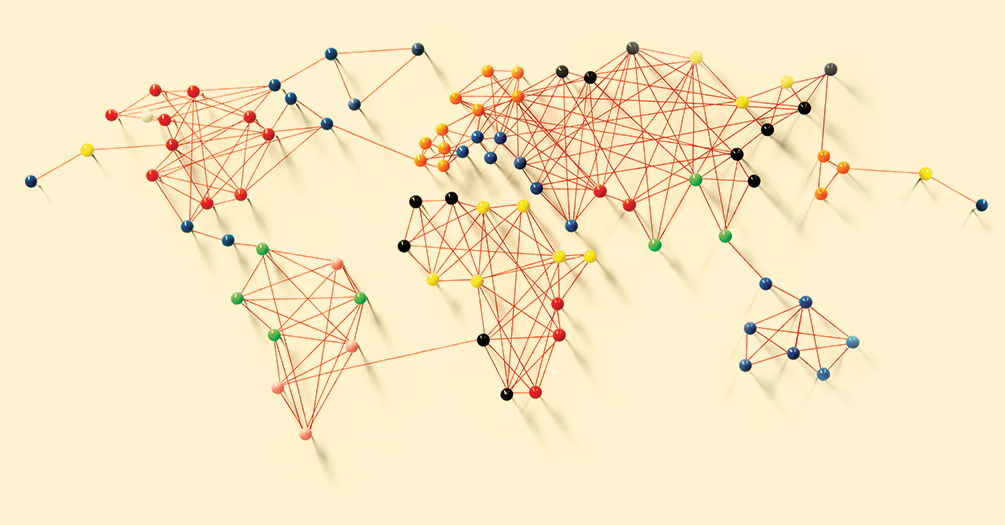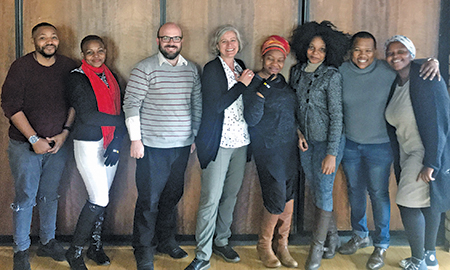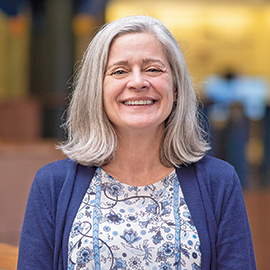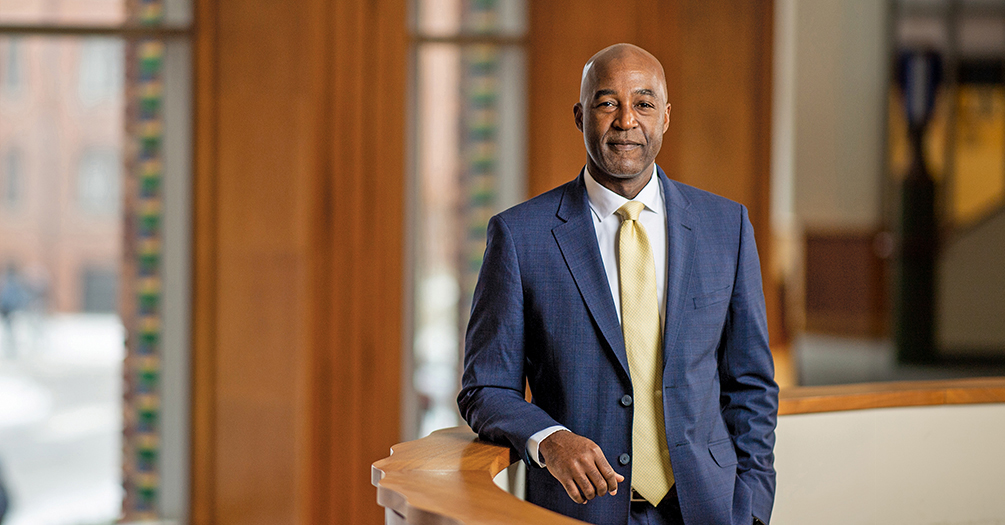It's Time to Rethink Capacity Building in Global Health Work

K. Rivet Amico
Associate Professor of Health Behavior and Health Education
For more than two decades, I have worked closely with international teams, colleagues, and communities on social and behavioral science issues and avenues for HIV treatment and prevention.
When the pandemic struck, my initial fear for my global health partners and communities I work with was that COVID-19 would be catastrophic. I feared that social distancing would be near impossible in densely populated areas, that illness would progress without access to treatments, and that progress in controlling the HIV epidemic would be lost. Foolishly, I believed that we in the US would have greater capacity to control COVID-19. We are, after all, well positioned as “capacity builders” based on our scientific infrastructure and vast financial resources.
Capacity sharing more overtly recognizes the function of all collaborators learning from one another.
As I come to fully appreciate how wrong I was, I believe we must seriously reconsider capacity building as the phrase that holds a prominent place in grant applications, deliverables, metrics for success, and funding programs for so many of the global health initiatives we propose. For many years, I have struggled with the term capacity building and urge all members of the global health community to consider an alternative—capacity sharing. COVID-19 has provided ample evidence for why this would be a well-timed change.

Capacity building has been interpreted to mean that partners with established experience build knowledge or practice in communities that are less resourced. Trainings are provided, workshops offered, or mentoring provided to build capacity. Unfortunately, this term and method can lead to directional (expert to learner) approaches that fail to leverage opportunities for all parties to learn from and engage each other.
Capacity sharing more overtly recognizes the function of all collaborators learning from one another, all expertise from diverse areas having value, and operationally requiring a joint effort to create new knowledge, resources, and skills from those combined experiences.
Capacity sharing is less about rating one country’s response over and against another’s and more about developing a recognition that we don't have all the answers here or in any area of public health. Choose any region of the globe and try a comparison exercise. For example, my colleagues in Zimbabwe and South Africa shared experiences of complete lockdowns with high community adherence and broad acceptance of mask wearing. In nearby Uganda, collaborators noted an initial high acceptance of masks and social distancing that then eroded when news of corruption in COVID-19 fund distribution was reported.
We can't say one is better than the other or better or worse than the US response—only different and a potential source of learning. Each nation and subregions of many nations have unique social, political, economic, and geographic realities that make responding to any public health emergency remarkably complicated. In the dynamic field of public health—including the complex and unprecedented context of responding to a global pandemic—we should move forward knowing that our best ideas are on an equal footing with ideas from other countries.
Capacity sharing is less about rating one country’s response over and against another’s and more about developing a recognition that we don't have all the answers.
While we have more financial resources than many other countries, we have far fewer in-community programs and limited community health worker services in many settings, and our systems for contact tracing and implementation of public health guidelines are fragmented. These are areas where our global health partners could build our capacity. With vaccines now available to reduce mortality and serious illness from COVID-19, we face an uphill battle to get them to a critical portion of the population and to ensure they are accepted. There are robust opportunities to learn from other regions around the world where community-based, participatory approaches have shifted attitudes and promoted uptake of prevention and treatment strategies. Are we willing to listen and to learn?
In the wake of COVID-19 and related public health responses, moving toward a capacity sharing framework is more relevant and pressing than ever. The language change from building to sharing would reflect the beginning of a new attitude toward such a framework. And the new attitude could lead us quickly into creative new approaches for assembling those frameworks alongside our global partners with public health resources transmitting in both directions.
About the Author
 K. Rivet Amico, PhD, is associate professor of Health Behavior and Health Education at the University of Michigan School of Public Health. She is an active contributor
in the areas of HIV-prevention and treatment social-behavioral theory development,
intervention implementation, and evaluation and measurement. Her research includes
work with engagement in HIV care, TB and drug resistant TB prevention and treatment,
PreExposure Prophylaxis (PrEP), social behavioral factors influencing participants
in clinical trials, and measures development. Amico's investment is largely in applied,
practical work that can effectively advance the reach and quality of care and prevention
services available domestically and internationally.
K. Rivet Amico, PhD, is associate professor of Health Behavior and Health Education at the University of Michigan School of Public Health. She is an active contributor
in the areas of HIV-prevention and treatment social-behavioral theory development,
intervention implementation, and evaluation and measurement. Her research includes
work with engagement in HIV care, TB and drug resistant TB prevention and treatment,
PreExposure Prophylaxis (PrEP), social behavioral factors influencing participants
in clinical trials, and measures development. Amico's investment is largely in applied,
practical work that can effectively advance the reach and quality of care and prevention
services available domestically and internationally.
- Interested in public health? Learn more here.
- Read more articles about global public health.
- Support research and engaged learning at the School of Public Health.
Read More Stories from the Spring 2021 Issue of Findings



